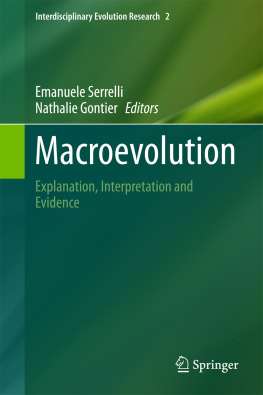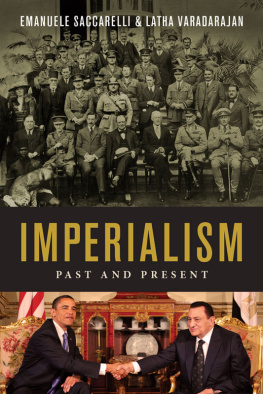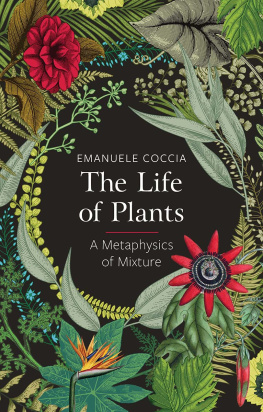Outlining the table of contents and writing an introduction to the various chapters of a book volume always comes with a reflection on the sequence in which we present the topics discussed by the authors, a sequence that in turn associates with the reasons we invited the scholars to contribute. Macroevolution on the one hand associates with theory formation and the methodological means by which we can interpret and explain evolution in deep time and above the species level. On the other hand, macroevolution is itself a phenomenon that can be evidenced by actual cases in lifes history. For that reason, we have divided the book into two parts, one that focuses on theory formation, and one that evidences macroevolution.
Introduction to Part 1: Macroevolutionary Explanations and Interpretations
For the first part, Macroevolutionary Explanations and Interpretations, we invited our contributors to focus on the theoretical, methodological, and epistemological aspects of macroevolution, defined as a scientific area of research that endorses specific scientific practices. Evolutionary scholars today continue to disagree on the nature and scope of evolutionary theory. Is there such a single field as evolutionary biology or is evolution a phenomenon studied by a variety of scientific disciplines? How does the field of macroevolution relate to microevolutionary biological areas of research? Is the Modern Synthesis complete, and can it adequately explain macroevolutionary problems above the population level such as speciation and extinction, evolutionary trends, major transitions, biological hierarchies, or species sorting? Does macroevolution delineate one or multiple distinct area(s) of research, or does it merely complement microevolutionary theory and practice? Answers to these questions not only vary, but also they continue to raise significant debate between micro- as well as macroevolutionary scholars. We have sought out both the controversies and agreements, and we have invited our contributors to write on how they, from within their specific disciplines, understand and define macroevolutionary epistemology, and how they see their theoretical frameworks fit or dissociate from the standard evolutionary paradigm both in theory and practice. We have favored quality over quantity and invited a selected group of scholars to provide extensive review chapters instead of aiming for shorter, more concise position papers.
For Douglas J. Futuyma , a leader in evolutionary biology (Futuyma ), macroevolutionary theory primarily associates with on the one hand ideas on developmental constraints as introduced by adherents of punctuated equilibria, and on the other hand, with the role speciation plays in bringing forth biodiversity at an ecological and biogeographical level. He opens the first part by asking Can Modern Evolutionary Theory Explain Macroevolution ? As one of the scholars who has long recognized the importance of the issues raised by macroevolutionary scholars, and who in his career has focused on reconciling aspects of punctuated equilibria theory with population genetics, he answers the question mostly in the affirmative. In his chapter, the author provides a rich contextualization of both the origin of the synthetic theory and how its architects tried to explain macroevolutionary above-population phenomena, as well as the challenges that evidence and hypotheses on developmental constraints and stasis, among others, pose to the synthetic theory. Futuyma provides historical insight into how post-synthetic evolutionary biologists have been reconciling these ideas into standard evolutionary theory, and he especially points toward the rising disciplines of evo-devo and evolutionary ecology as the means by which such reconciliation is possible. Eco-evo-devo presents a more evolved and richer synthetic evolutionary view, and the continuously evolving and expanding framework therefore remains valid.
That evolutionary theory is valid and is undisputed by macroevolutionary scholars (Ridley ). Nonetheless, many macroevolutionary scholars are less optimistic about how well microevolutionary theory can explain macroevolutionary problems or predict evolutionary outcomes. How do macroevolutionary scholars differentiate their research agenda from microevolutionary biology, and how do they define the microevolutionary fields they oppose? Macroevolutionary areas of research today associate with fields such as paleobiology, ecology, systematics, and biophysics, and scholars that form part of these fields in general think that microevolutionists place too much emphasis on genetic selection at the expense of other principles, such as physical and ecological ones, that equally contribute to our understanding of evolution.
Folmer Bokma tests some of the microevolutionary predictions on speciation, extinction as well as the mode and tempo of evolution in his chapter Evolution as a Largely Autonomous Process . He gives a series of examples wherein he demonstrates the means by which microevolutionary scholars provide explanations and make predictions on the evolutionary fates of species as well as how they interact with other species (flowers and their pollinators, for example), and weighs them against the actual evolutionary history that those life forms undergo through time, which he in turn deduces from molecular phylogenetic analyses. His examples demonstrate an epistemic ambivalence and duality in the works of microevolutionists, which he characterizes as ascribing change to natural selection when it occurs, but failing to account for the frequent cases where no evolution is observed though it is predicted. To explain periods of stasis as well as rapid speciation, he turns to punctuated equilibria theory and agrees with many of the founders of macroevolutionary thought that in real-life history events, natural selection, in and of itself, cannot account for speciation, extinction, or stasis. Again, he firmly grounds these conclusions upon the incoming results of molecular phylogenetics, a rising field that today forms a bridge between fossils and genes, and where Bokma is a leading and pioneering expert. He furthermore turns to epigenetics and evo-devo to explain evolution as a largely autonomous process.











![Emanuele Feronato [Emanuele Feronato] - Flash Game Development by Example](/uploads/posts/book/120345/thumbs/emanuele-feronato-emanuele-feronato-flash-game.jpg)
